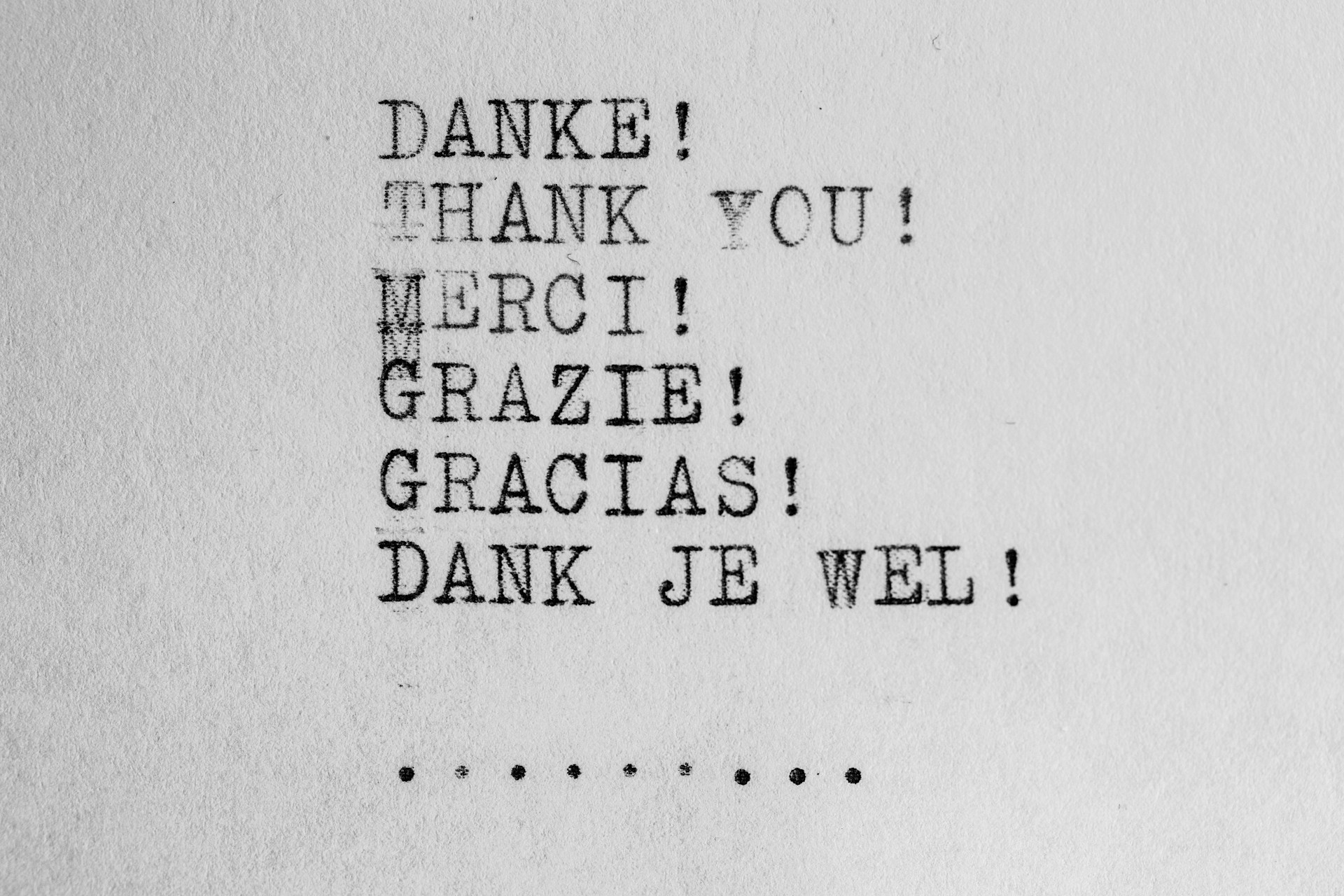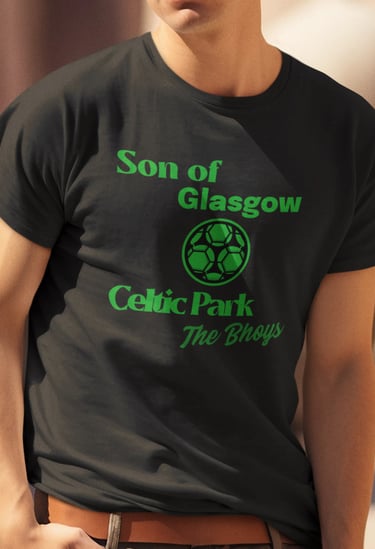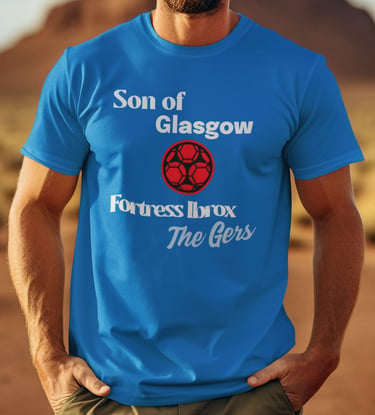The Intense Rivalry in Glasgow: Celtic F.C. vs Rangers F.C.
3/15/202410 min read
Both Celtic F.C. and Rangers F.C. have deep-rooted histories that date back over a century. Celtic F.C., founded in 1887 by Brother Walfrid, was established as a means to raise funds for the impoverished Irish Catholic community in Glasgow. The club quickly gained popularity and success, becoming the first British team to win the European Cup in 1967, affectionately known as the Lisbon Lions. This triumph solidified Celtic's place in football history and further intensified their rivalry with Rangers.
Rangers F.C., on the other hand, was founded in 1872 and has a rich history of its own. The club has won a staggering 54 Scottish league titles, more than any other club in the world. Rangers' success on the pitch has earned them a loyal and passionate fanbase, known for their unwavering support and dedication to the club. This success has fueled the rivalry between the two clubs, as both sets of fans strive to prove their superiority.
The Glasgow derby, commonly referred to as the Old Firm, is a fixture that ignites the passions of fans on both sides. The atmosphere inside Celtic Park, the home stadium of Celtic F.C., is electric on matchdays, with the stands filled with green and white scarves and banners. The same can be said for Ibrox Stadium, the home of Rangers F.C., where the sea of blue and white creates an intimidating atmosphere for visiting teams.
What sets the Old Firm apart from other rivalries is the deep-seated religious and cultural divide that exists between the two clubs. Celtic F.C. has historically been associated with the Catholic community in Glasgow, while Rangers F.C. has strong ties to the Protestant community. This religious and cultural rivalry adds another layer of intensity to the matches, with fans on both sides viewing the games as a battle for supremacy.
Over the years, the Old Firm has produced countless memorable moments and iconic players. From Henrik Larsson's goal-scoring exploits for Celtic to Ally McCoist's legendary status at Rangers, the derby has seen some of the finest talents in Scottish football history. The players who have represented these clubs understand the magnitude of the fixture and the responsibility they bear to perform for their fans.
Off the pitch, the rivalry between Celtic and Rangers has occasionally spilled over into incidents of violence and sectarianism. The clubs and authorities have taken steps to address these issues and promote a more inclusive and respectful environment. However, the passionate nature of the rivalry means that emotions can still run high, and both sets of fans are known for their fervent support.
The intense rivalry between Celtic F.C. and Rangers F.C. is a testament to the power of football to unite and divide communities. The passion, history, and cultural significance of the Old Firm make it one of the most captivating fixtures in the world of sports. Whether you support Celtic or Rangers, there is no denying the impact that this rivalry has had on the city of Glasgow and the sport of football as a whole.
Celtic's success in the European Cup was the culmination of a remarkable season under the guidance of their legendary manager, Jock Stein. The team, affectionately known as the "Lisbon Lions," consisted of a group of talented players who had all been developed through the club's youth system. Their victory in the final against Inter Milan was a testament to their skill, determination, and the attacking style of play that Celtic had become known for.
Following their European triumph, Celtic continued to dominate Scottish football throughout the 1970s and 1980s. Under the management of Stein and later Billy McNeill, the club won nine consecutive Scottish League titles from 1966 to 1974, a record that still stands today. During this period, Celtic also enjoyed success in European competitions, reaching the final of the European Cup again in 1970, although they were defeated by Feyenoord.
In recent years, Celtic has maintained their position as one of the top clubs in Scotland, regularly competing for domestic honors and participating in European competitions. The club's success has been built on a strong foundation of developing young talent, with their academy producing a number of players who have gone on to have successful careers both at Celtic and beyond.
Off the pitch, Celtic has also made significant contributions to the community and charitable causes. The club's charitable arm, the Celtic FC Foundation, continues to uphold the founding principles of Brother Walfrid by supporting various initiatives aimed at tackling poverty and promoting social inclusion.
The rivalry between Celtic and Rangers, known as the Old Firm derby, is one of the most intense and storied in world football. The two clubs, both based in Glasgow, have a long and contentious history that extends beyond football. The rivalry is fueled by cultural, religious, and political differences, with Celtic traditionally representing the Catholic community and Rangers associated with the Protestant community.
Despite the fierce competition between the two clubs, there have been moments of unity and solidarity. In 2020, during the COVID-19 pandemic, Celtic and Rangers joined forces to launch the "Football for Good" campaign, which aimed to support vulnerable individuals and communities affected by the crisis. This collaboration demonstrated the power of football to bring people together, even in the midst of bitter rivalries.
As Celtic F.C. continues to evolve and adapt to the ever-changing landscape of football, their rich history and commitment to their community will undoubtedly remain at the core of the club's identity. With their passionate fan base and storied traditions, Celtic will continue to be a force to be reckoned with in Scottish and European football for years to come.
Rangers' success on the domestic front continued throughout the 1980s and 1990s. Under the management of Graeme Souness, the club embarked on a period of dominance, winning nine consecutive Scottish League titles from 1989 to 1997. This era saw the emergence of legendary players such as Ally McCoist, Richard Gough, and Brian Laudrup, who played pivotal roles in Rangers' success.
In addition to their domestic achievements, Rangers also made their mark on the European stage. In the 1992-1993 season, they reached the final of the UEFA Champions League, narrowly losing to Marseille. Despite falling short in the final, their impressive run in the competition showcased the club's ability to compete with the best teams in Europe.
However, Rangers' success was not without its challenges. In 2012, the club faced financial difficulties and was forced to enter administration. This led to their demotion to the Scottish Third Division, the lowest tier of Scottish football. Despite the setback, the club showed resilience and quickly climbed back up the ranks, winning promotion in consecutive seasons to regain their place in the Scottish Premiership.
Since their return to the top flight, Rangers have once again established themselves as a force to be reckoned with. Under the management of Steven Gerrard, the club has enjoyed a resurgence, reclaiming the Scottish Premiership title in the 2020-2021 season after a decade-long drought. This triumph marked a significant milestone in the club's history and reignited the passion and pride among the Rangers faithful.
Off the pitch, Rangers F.C. has a loyal and passionate fan base. The club's supporters, known as the "The Blue Sea of Ibrox," are renowned for their unwavering support and create an electric atmosphere at home matches. The rivalry between Rangers and Celtic is one of the fiercest in world football, with matches between the two teams often referred to as the "Old Firm" derby.
In conclusion, Rangers F.C. has a rich and illustrious history that spans almost 150 years. From their early dominance in Scottish football to their European adventures and recent resurgence, the club has left an indelible mark on the sport. With a passionate fan base and a commitment to success, Rangers F.C. continues to be a powerhouse in Scottish football and a symbol of pride for its supporters.
The Intensity of the Rivalry
The rivalry between Celtic F.C. and Rangers F.C. goes beyond football. It is deeply rooted in the historical, cultural, and religious differences between the two clubs and their supporters.
Celtic F.C. has traditionally had strong ties to the Irish Catholic community in Glasgow, while Rangers F.C. has historically attracted support from the Protestant community. These religious and cultural affiliations have contributed to the intense atmosphere surrounding the Glasgow derby.
The matches between Celtic and Rangers are often referred to as the "Old Firm" games, a term coined in reference to the original firm that sponsored the clubs in the early 1900s. These matches are known for their passionate fans, intense rivalries, and high-stakes competition.
The rivalry between the two clubs has had its fair share of controversies and heated moments. Incidents of violence, sectarianism, and offensive chants have marred some of the matches in the past. However, both clubs and their respective governing bodies have taken steps to address these issues and promote a more inclusive and respectful environment.
Despite the efforts to promote a more inclusive atmosphere, the intensity of the rivalry between Celtic and Rangers remains palpable. The matches between these two clubs are more than just a game; they are a reflection of a deeply rooted divide in Glasgow's society. The passion and emotions that surround the Old Firm games are unparalleled, with fans from both sides displaying unwavering loyalty and dedication to their respective clubs.
The rivalry extends beyond the pitch and spills over into various aspects of life in Glasgow. It influences social interactions, political affiliations, and even business partnerships. The divide between Celtic and Rangers supporters can be seen in the colors worn on the streets, the pubs frequented, and the neighborhoods inhabited.
Historically, the rivalry between Celtic and Rangers has been fueled by a sense of identity and belonging. For many supporters, their allegiance to their club is intertwined with their religious and cultural heritage. The matches become a battleground where these identities clash, with each side fighting to assert their dominance and superiority.
Over the years, the rivalry has produced legendary players and iconic moments that have further cemented its significance. From the fierce battles between the likes of Henrik Larsson and Paul Gascoigne to the unforgettable goals and dramatic comebacks, the Old Firm games have a rich history that adds to the allure of the rivalry.
Despite its intensity, the Celtic-Rangers rivalry also serves as a reminder of the power of sport to bring people together. In recent years, initiatives such as the "Football for All" campaign have aimed to promote unity and understanding among fans, encouraging them to focus on the shared love for the game rather than their differences.
As the rivalry continues to evolve, it is important to recognize its complexities and strive for a more harmonious coexistence between the two clubs and their supporters. While the passion and intensity will always be a part of the Celtic-Rangers rivalry, fostering respect and inclusivity should be at the forefront of any efforts to ensure that football remains a unifying force in Glasgow.
Notable Achievements and Head-to-Head Battles
Over the years, Celtic F.C. and Rangers F.C. have engaged in numerous memorable battles on the football pitch. These matches have often determined the outcome of the Scottish League Championship and other domestic competitions.
In recent years, Celtic has dominated Scottish football, winning the league title in nine consecutive seasons from 2011 to 2020. This period of success has further intensified the rivalry, as Rangers F.C. aims to reclaim their position at the top of Scottish football.
One of the most memorable head-to-head battles between the two clubs came in the 2018-2019 season. After years of dominance by Celtic, Rangers emerged as strong contenders for the league title. The matches between the two sides were fiercely contested, with both teams showcasing their skills and determination.
In the end, Celtic narrowly secured the league title, finishing just nine points ahead of Rangers. However, the competitive nature of the matches and the resurgence of Rangers gave hope to their supporters and added a new chapter to the historic rivalry.
The 2018-2019 season not only showcased the on-field battles between the two clubs but also produced some notable individual achievements. Celtic's striker, Odsonne Edouard, had a standout season, finishing as the league's top scorer with an impressive tally of 22 goals. His performances were crucial in securing vital victories for Celtic throughout the season.
Rangers, on the other hand, had their own standout performers. Their goalkeeper, Allan McGregor, was a force to be reckoned with, producing remarkable saves and keeping clean sheets in crucial matches. McGregor's heroics between the posts played a significant role in keeping Rangers in contention for the league title until the final stages of the season.
Aside from the league title, both clubs also had success in other domestic competitions. Celtic clinched the Scottish Cup, defeating Hearts in the final with a dominant 4-1 victory. Rangers, on the other hand, had a successful run in the Scottish League Cup, reaching the final but narrowly losing to Celtic in a thrilling encounter that ended 1-0.
These achievements and head-to-head battles between Celtic and Rangers not only captivated the fans but also attracted attention from football enthusiasts worldwide. The intense rivalry between the two clubs, fueled by their rich history and passionate supporters, continues to make every encounter between them a spectacle to behold.
The impact of the Celtic-Rangers rivalry extends beyond the pitch and into the economic and cultural aspects of Scottish football. The matches between these two clubs generate significant revenue for the Scottish Football Association (SFA), as well as for local businesses in Glasgow and other cities hosting the matches.
With the global attention that these matches attract, television rights and sponsorships become highly sought after, leading to lucrative deals for both clubs. This influx of financial resources allows them to invest in their youth academies, training facilities, and scouting networks, ultimately improving the quality of players produced by Scottish football.
Moreover, the rivalry between Celtic and Rangers has a profound impact on the national team. Players from both clubs often form the backbone of the Scottish national squad, and the intense competition they experience in domestic matches prepares them for the challenges of international football.
On a cultural level, the Celtic-Rangers rivalry has become deeply ingrained in Scottish society. The matches are not just sporting events; they are social gatherings where fans come together to celebrate their shared passion for football. The pre-match rituals, chants, and songs create an atmosphere that is unique to Scottish football and has become an important part of the country's cultural heritage.
Furthermore, the rivalry has had a significant influence on the development of youth football in Scotland. Many young players are inspired by the fierce competition between Celtic and Rangers and aspire to one day represent these clubs. This motivation drives them to work harder, pushing the boundaries of their abilities and contributing to the overall improvement of Scottish football.
In conclusion, the Celtic-Rangers rivalry has had a far-reaching impact on Scottish football. It has elevated the standards of the sport, generated economic opportunities, fostered a sense of identity among supporters, and contributed to the growth of youth football. This rivalry is not just a clash between two clubs; it is a symbol of Scottish football's rich history and its enduring passion for the beautiful game.





